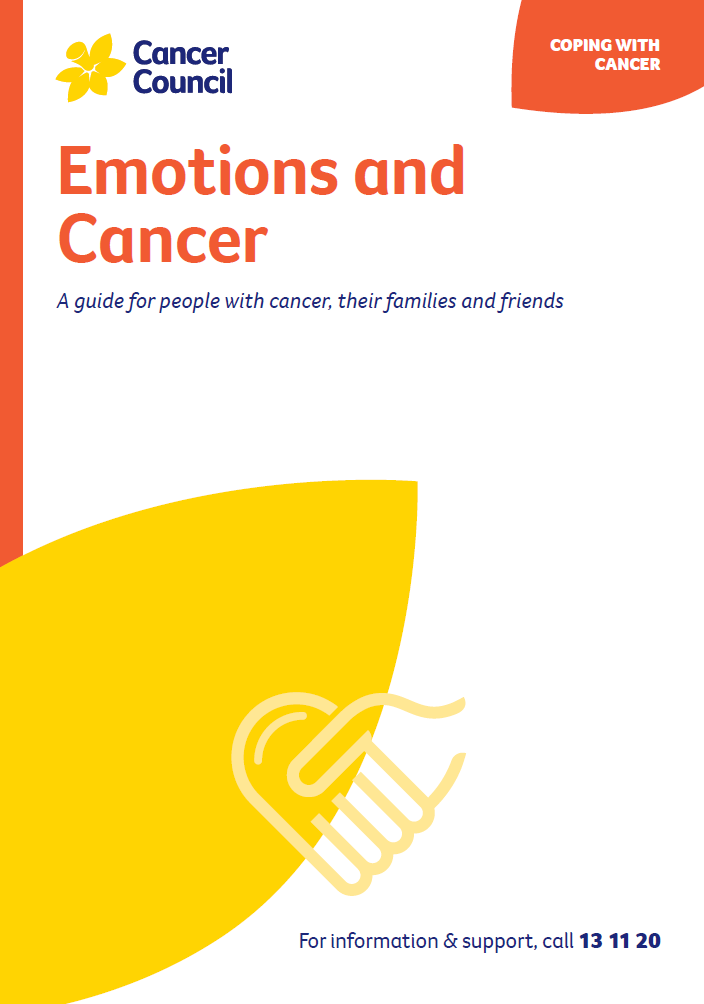- Home
- About Cancer
- Coping with a diagnosis
- Emotions and cancer
- Your coping toolbox
Your coping toolbox
Here we discuss the different tools you can use to help you cope with a cancer diagnosis.
Learn more about:
- Common coping strategies
- Tools for coping
- Gathering information
- Making decisions
- Using complementary therapies
- Managing your thoughts
- Improving sleep
Common coping strategies
Most of us have various ways of coping with difficult situations, which we have learned over time. These could include:
- seeking more information
- finding solutions
- having a laugh to feel better
- trying to be strong and “soldiering on”
- distracting ourselves from unhelpful thoughts and feelings
- shifting our focus to a pleasurable activity
- talking things through to try to make sense of what is happening.
Factors affecting how you cope
How you cope depends on many factors, such as the particular situation you are facing, as well as your past experiences, personality, upbringing and role models. There is no best or right way of coping.
It is important to think about what has worked for you in the past, but after a cancer diagnosis, you may find that you need a little more help. Exploring different coping strategies can help you feel more in control.
Less helpful coping strategies
Some coping strategies are less helpful than others. Disbelief and denial are common reactions to a cancer diagnosis, and you may find you go back and forth between denial and acceptance for a time.
If the denial is ongoing, however, it can become hard to make decisions about treatment, or it might lead you to avoid your appointments. Some people use alcohol and drugs to cope with stressful situations.
Seeking professional support
These may appear to provide short-term relief, but they can cause long-term harm and could affect how well the cancer treatment works. If you think you might be in denial or starting to rely on alcohol or drugs to cope, it is important to talk to your cancer care team about getting professional support. With the right help, it is possible to learn new ways of coping.
Podcast: Coping with a Cancer Diagnosis
Listen to more of our podcast for people affected by cancer
More resources
Dr Michael Murphy, Psychiatrist, NSW Health, and Conjoint Senior Lecturer, UNSW, NSW (clinical review); A/Prof Anne Burke, Co-Director, Psychology and Allied Health Lead, Cancer, Central Adelaide Local Health Network and The University of Adelaide, SA; Hannah Chen, Psychologist, Cancer Council Queensland; Hazel Everett, Clinical Nurse Consultant, Cancer Services, St John of God Subiaco Hospital, WA; Shona Gates, Senior Social Worker, North West Cancer Centre, TAS; Dr Jemma Gilchrist, Senior Clinical Psychologist, Mind My Health and Crown Princess Mary Cancer Centre, Westmead, NSW; Sandra Hodge, Consumer; Dr Michael Murphy (see above); Caitriona Nienaber, 13 11 20 Consultant, Cancer Council WA; Dr Alesha Thai, Medical Oncologist, Peter MacCallum Cancer Centre, VIC; Alan White, Consumer.
View the Cancer Council NSW editorial policy.
View all publications or call 13 11 20 for free printed copies.

